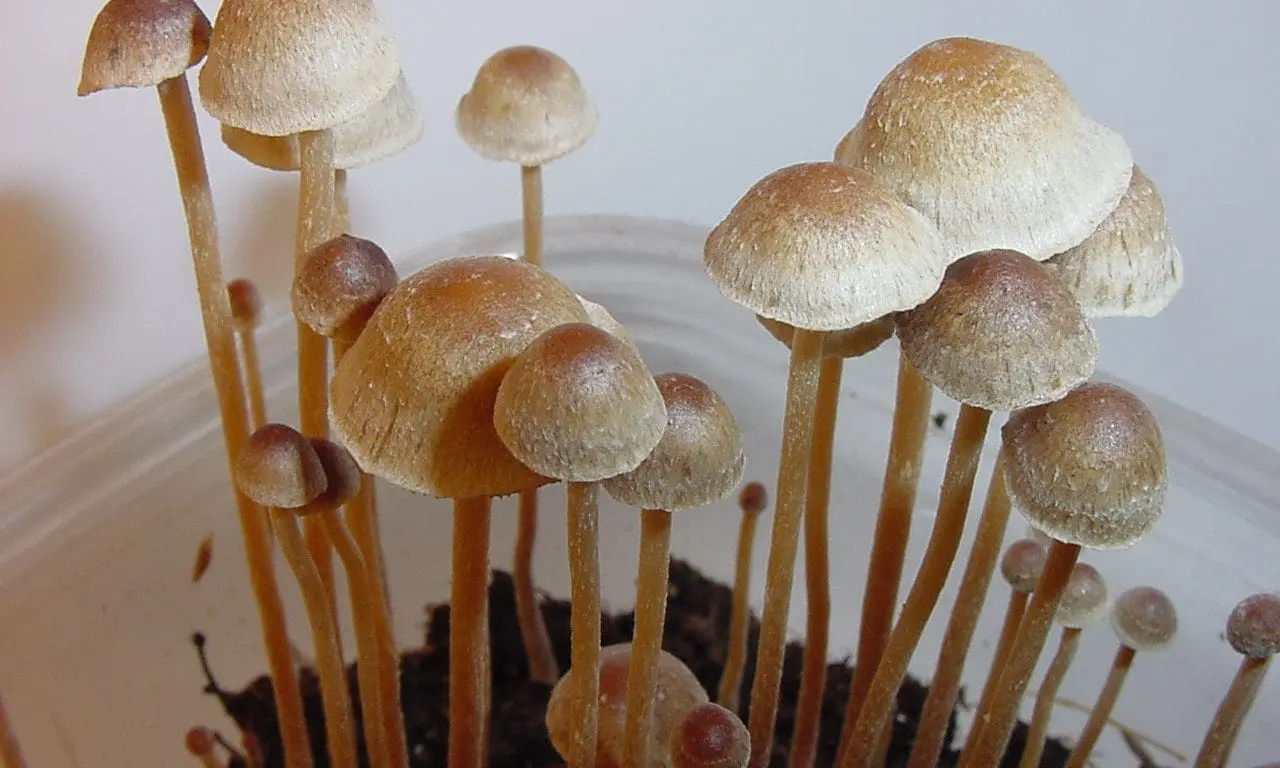Politics
Psychedelics Decriminalization Advancing In Three More Cities, Spanning From Coast To Coast

From Massachusetts to California, advocates are actively making new strides to reform local laws governing psychedelics like psilocybin and ayahuasca—building on a national movement that has already seen numerous cities decriminalize entheogenic substances.
The momentum of the psychedelics decriminalization movement is abundantly clear when one considers the geopolitical landscape that’s being targeted by activists associated with Decriminalize Nature of late. The latest cities where the reform move is generating steam are Easthampton, Massachusetts; Grand Rapids, Michigan and Arcata, California.
Here’s a breakdown of where the efforts stand in each city:
Easthampton
The Easthampton City Council is exploring a resolution to decriminalize a wide range of entheogenic substances. Passing the measure would mean that Easthampton would be the fourth city in Massachusetts to enact the reform.
Councilors Owen Zaret, Thomas Peake and Salem Derby are sponsoring the resolution, which seeks to make enforcement of laws against certain psychedelics among the city’s lowest priorities. Advocates with Bay Staters for Natural Medicine have helped spearhead the effort.
“This is an opportunity to be forward-thinking and make a statement to undo historical harm done by criminalizing plants that have clear therapeutic properties,” Zaret said in a press release. “People should not be arrested or incarcerated for essentially using medicine. This lays a path towards legislation that allows for de-scheduling these plants, and creating a reasonable and safe regulatory framework for entheogenic therapy outside of the reach of Big Pharma.”
Law Enforcement Action Partnership (LEAP) is also supporting the reform, and advocates have already met with local police officials to discuss the issue.
“Many officers know arrests can make people suffering substance use disorder even worse off,” James Davis, a volunteer for Bay Staters for Natural Medicine, said. “We are grateful to first-responders having tough conversations in their own departments about how to treat people with humanity—possession arrests lose people their jobs, traumatize them, lose them access to benefits, and often makes fentanyl access easier in jails and prisons.”
Other Massachusetts cities that have enacted the policy change are: Northampton, Somerville and Cambridge.
Last week, state lawmakers also heard testimony about a bill to create a task force charged with studying the implications of legalizing psychedelics like psilocybin and ayahuasca.
Grand Rapids
In Grand Rapids, a local lawmaker who is advising the city’s chapter of Decriminalize Nature recently said that he feels there’s enough support to advance a psychedelics decriminalization resolution.
“In terms of my discussions with my colleagues, they’re all very open minded to it; They all have a lot of questions,” City Commissioner Kurt Reppart to MLive. “Several of them have expressed explicit support. I believe we have enough support to pass a resolution.”
He said the measure could go to a vote by the end of the year, though no actions are currently scheduled. City attorneys are currently reviewing the proposed language, after which point it would be sent to the city commission’s Legislative Committee to advise on whether the body should approve or reject it.
“The best case scenario for me is that during the fall it would come up and it would pass with a resounding vote,” he said.” I don’t know if it would be unanimous, but it would be a strong vote.”
As with most Decriminalize Nature proposals, the one being planned would not legalize the psychedelics, but simple possession and cultivation offenses involving the substances would be deprioritized for law enforcement.
If approved, this would be the second Michigan city to pass psychedelics decriminalization, following the Ann Arbor City Council’s unanimous vote to pass a similar resolution last year.
“Decriminalizing things that are not harming anyone ought to be the first thing that we take away from law enforcement and say, ‘You know what, we’ve been asking you to do that. You no longer have to go to those places where you don’t have the training and the expertise and it’s always uncomfortable,’” Reppart.
Arcata
In Arcata, the City Council’s Public Safety Committee recently advanced a psychedelics reform resolution led by Decriminalize Nature Humboldt. The panel revised it to restrict the policies on deprioritizing enforcement to use and possession in private spaces, and members also urged the inclusion of an educational campaign on the issue.
This action came after the full body ended up split on the proposal during earlier consideration. But the committee’s passage of the measure means it will be returned to the full Council.
“The city has the power to prioritize where law enforcement goes and then where the resources go for that,” Larry Norris, co-founder of Decriminalize Nature, said in testimony, according to The Times-Standard. “It doesn’t change the law. There are no changes to municipal code, but [decriminalization] really allows for the city to say, ‘Hey, plants and mushrooms aren’t really a big priority for us, we have other things going on.’”
Councilmember Sarah Schaefer agreed to lead the resolution, which would make enforcement of laws against entheogenic substances like psilocybin and ibogaine among the city’s lowest law enforcement priorities.
Danielle Daniel, lead organizer of Decriminalize Nature Humboldt, told Marijuana Moment that she has “so much gratitude for the Arcata Public Safety Committee’s openness to understanding the healing potential of entheogenic plants and fungi, and the importance of decriminalization for our community.”
“With Decriminalize Nature Humboldt’s dedication to educating our community about entheogens, and how to take them in a therapeutic way, we hope to dispel any confusion or fear about decriminalization in Arcata,” she said.
In California, Oakland and Santa Cruz have already enacted psychedelics decriminalization.
—
Marijuana Moment is already tracking more than 1,200 cannabis, psychedelics and drug policy bills in state legislatures and Congress this year. Patreon supporters pledging at least $25/month get access to our interactive maps, charts and hearing calendar so they don’t miss any developments.
![]()
Learn more about our marijuana bill tracker and become a supporter on Patreon to get access.
—
Here’s more context on the psychedelics reform movement:
For the most part, the burgeoning psychedelics movement has been limited to decriminalization—with the exception or Oregon, where voters elected to legalize psilocybin for therapeutic purposes during last year’s election. California activists are also pushing to place psilocybin legalization on the state’s 2022 ballot as a lawmaker works to pass a separate bill to legalize possession of a wide range of psychedelics that has already passed the state Senate and two Assembly committees.
The latest developments in Easthampton, Grand Rapids and Arcata are some of the latest iterations of a national psychedelics reform movement that’s spread since Denver became the first city to decriminalize psilocybin mushrooms in 2019.
The governor of Connecticut signed legislation recently that includes language requiring the state to carry out a study into the therapeutic potential of psilocybin mushrooms.
Texas also recently enacted a bill to require the state study the medical benefits of psychedelics for military veterans.
A New York lawmaker introduced a bill in June that would require the state to establish an institute to similarly research the medical value of psychedelics.
In Oakland, the first city where a city council voted to broadly deprioritize criminalization of entheogenic substances, lawmakers approved a follow-up resolution in December that calls for the policy change to be adopted statewide and for local jurisdictions to be allowed to permit healing ceremonies where people could use psychedelics.
After Ann Arbor legislators passed a decriminalization resolution last year, a county prosecutor recently announced that his office will not be pursuing charges over possessing entheogenic plants and fungi—“regardless of the amount at issue.”
The Aspen, Colorado City Council discussed the therapeutic potential of psychedelics like psilocybin and proposals to decriminalize such substances at a meeting in May. But members said, as it stands, enacting a reform would be more better handled at the state level while entheogens remain strictly federally controlled.
Seattle lawmakers also recently sent a letter to members of a local task force focused on the opioid overdose epidemic, imploring the group to investigate the therapeutic potential of psychedelics like ayahuasca and ibogaine in curbing addiction.
The psychedelics conversation is also catching on at the federal level.
But in a setback for advocates, the U.S. House of Representatives last week voted against a proposal from Rep. Alexandria Ocasio-Cortez (D-NY) that would have removed a spending bill rider that advocates say has restricted federal funds for research into Schedule I drugs, including psychedelics such as psilocybin, MDMA and ibogaine. However, it picked up considerably more votes this round than when the congresswoman first introduced it in 2019.
Report provisions of separate, House-passed spending legislation also touch on the need to expand cannabis and psychedelics research. The panel urged the National Institute On Drug Abuse (NIDA) to support expanded marijuana studies, for example
It further says that federal health agencies should pursue research into the therapeutic potential of psychedelics for military veterans suffering from a host of mental health conditions.
When it comes to broader drug policy reform, Oregon voters also approved an initiative in November to decriminalize possession of all drugs. This year, the Maine House of Representatives passed a drug decriminalization bill, but it later died in the Senate.
In May, lawmakers in Congress filed the first-ever legislation to federally decriminalize possession of illicit substances.
Wyoming Marijuana Decriminalization And Medical Cannabis Initiatives Clear First 2022 Ballot Hurdle
Photo courtesy of Wikimedia/Workman.



